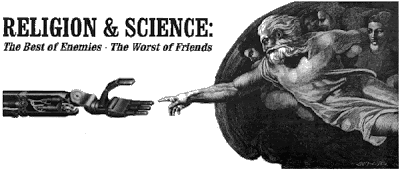 The Brave New World crowd and the media continually pretend that the only objections to scientific projects such as human cloning are religiously based. The latest example is in a profile of the new head of the NIH, Francis Collins, an evangelical Christian, in the New York Times. From the story:
The Brave New World crowd and the media continually pretend that the only objections to scientific projects such as human cloning are religiously based. The latest example is in a profile of the new head of the NIH, Francis Collins, an evangelical Christian, in the New York Times. From the story:
Dr. Irving L. Weissman, director of the Stanford Institute of Stem Cell Biology and Regenerative Medicine, said he was nervous about the appointment until Dr. Collins promised in a phone call not to let faith interfere with scientific judgment. But Dr. Weissman said that when therapeutic cloning proved successful, as he predicted it would, Dr. Collins would face a conflict between his job and his faith. “There will be a moment of truth for Dr. Collins,” Dr. Weissman said.
In a recent interview over French toast at a diner near the agency’s sprawling campus here, Dr. Collins rejected any notion that faith and science conflicted in substantial ways. Indeed, he said, science illuminates the work and language of God. And he pointed out that he wrote in his book about God that he supports therapeutic cloning. When his book on personalized medicine comes out early next year, he hopes to move the conversation about his writings back to science.
I certainly agree that religion and science are not incompatible, although some scientists are certainly at war with religion. But that is beside the point. What I find disturbing is Collins’s seeming acceptance that religion is the only basis for opposing human cloning. In fact, it is the least of it. Treating human life as a mere commodity, manufactured solely for instrumental use, quality control, and destruction, is a hugely important ethical issue that extends far beyond religion and into important human rights issues, including the intrinsic value of human life, e.g. human exceptionalism.
What I don’t understand is where Collins comes down on when human life becomes protectable. Based the statements I have seen—and admittedly, I have not done exhaustive research on his views—Collins support of ESCR and therapeutic cloning seem to be reflexive and expedient, rather than deeply considered or philosophically based. In any event, if he hasn’t yet, he had better figure that out: It is conceivable that during his tenure he could well face the question of whether to permit gestation of embryos beyond the Petri dish for use in research, indeed, depending on the speed of science, perhaps even the launching of fetal farming in artificial environments.
You have a decision to make: double or nothing.
For this week only, a generous supporter has offered to fully match all new and increased donations to First Things up to $60,000.
In other words, your gift of $50 unlocks $100 for First Things, your gift of $100 unlocks $200, and so on, up to a total of $120,000. But if you don’t give, nothing.
So what will it be, dear reader: double, or nothing?
Make your year-end gift go twice as far for First Things by giving now.


